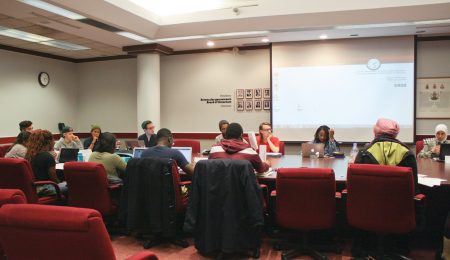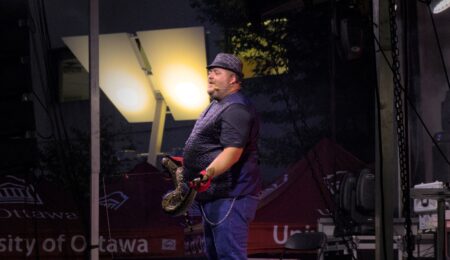SEXUAL VIOLENCE IS STILL PREVALENT IN CANADA AND IN THE WORLD. THESE PROTESTERS SEEK TO END IT
Content warning: for mentions of sexual assault
On the evening of Sept. 21, the Take Back the Night March of Ottawa was gathered at Minto Park This march is a part of a global demonstration in thirty countries around the world, where protesters gather each year to call for an end to sexual violence.
This year’s rally was organized by the Sexual Assault Support Centre of Ottawa (SASCO), an organization that provides virtual and in-person support groups for survivors of sexual assault.
“This year we wanted to focus on amplifying marginalized voices,” said Amina Doreh, the public education coordinator at SASCO.
This commitment to inclusion was apparent in the line-up of rally speakers. Firstly, the MC of the event, Bilan Arte, spoke in both English and French and was accompanied by two sign-language interpreters. The speakers of the night were N’nerjie, a Black queer musician; Marie-Pier Savage, a Francophone activist; and Dahlia Belfer, a disabled r fourth-year student studying social work at Carleton University.
“We are here to demand safety,” said the Arte. “In our streets, in our homes, in the world.”
N’nerjie began her speech with the confession that she was a survivor of childhood sexual abuse.
“It happened for 9 years. Eventually, I made the decision to press charges. This morning, this matter was adjourned to benefit the person who abused me. I’m starting to realize that these systems put in place to protect us don’t actually do that,” said ‘Nrgie to an emotional crowd.
“To all the survivors here, I want you to know that healing is possible. I want you to know that you can live in your body again. I want you to know that you’re not alone. Have compassion for yourself.”
Dahlia Belfer began her speech by reciting the statistic that disabled women experience sexual assault at 4 times the national average of non-disabled women.
“This was never and will never be acceptable.”
Belfer rebuked the attitude of dismissal taken by the general public towards the stories of abuse in the disabled community. Towards the end of her speech, she performed a spoken word poem that lingered on the emotions of a mother waiting anxiously for her disabled daughter to come home after a night out.
“Je ne suis pas victime, j’suis pas survivante,” said Marie-Pier Savage, the final speaker of the rally; in English, I am not a victim, I am not a survivor.
Arte spoke in a final address, highlighting the intersection of colonialism, white supremacy, and gender-based violence.
“We must take particular care to defend indigenous women, trans women, racialized women, newcomer women, and women from all marginalized communities.”
After the speeches, the rally became a march, beginning on Lewis Street and ending at the Ottawa City Hall. The night was filled with chants, with singing, with the sound of a community gathered to lift each other up.





